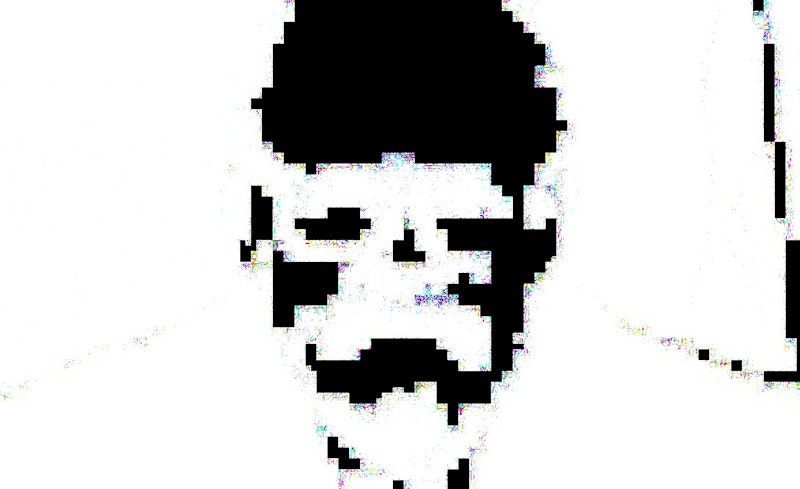“Ooooooohhhhh, my aching back…” Mr. Bucci might’ve been quoting I Was a Male War Bride (Howard Hawks, 1949), but he was being sincere. I knew how much his back ached by the way he walked to and from the bathroom; even though we were near the front, Enzo always shuffled to the opposite end of the airplane to pee or do whatever he was doing in there, dozens and dozens of times during our 15-hour flight. My knowledge of the Italian didn’t extended into pharmacology, so I was left out when they started talking about Enzo’s medication, how much to take, and when. But again, I knew why: “…you cannot sleep, because you must pee, always in the middle of the night… yes, you must take it… no, I understand… I understand that… listen to me: just with water. No food. No alcohol. Just with water, for your heart…”
Giuseppe kept trying to put pills and pill bottles into Enzo’s right palm, but sensually, so much so that Enzo kept recoiling, to the point that he accused his manager of being a closeted homosexual about an hour into the flight. “You are a predator—but worse, a terrible businessman.” It took Giuseppe another three hours to convince Enzo that his wife and children were indeed real and biologically related. “I’ll believe it when I see you mounting her at Cinecitta.” Giuseppe spit into Enzo’s lap. He called for Isadora, “May I have a towel?” She understood. I wish I remembered her last name. “Enzo, remember, these are fans like you’ve never seen before. Hundreds. They will all be there, from America.” Giuseppe tried to convince his miserable client that he was beloved in the United States, but I never got the sense that Enzo bought it, at least on that flight to New York.
Bhonnnnnn, the seatbelt signs turn on. “We’re now cleared for landing. We’ll be arriving in New York John F. Kennedy Airport in 45 minutes. Thank you for choosing to fly the friendly skies with Italian Air, my name is Isadora, ciao.” She put the intercom phone back and sat down, but Enzo wasn’t having it. “I want a kiss.” Isadora blanched and looked over at him. She didn’t say a word. Enzo repeated himself. “I want a kiss.” Isadora blinked, got up, walked over, and kissed Enzo on the forehead. She stood over him as he looked up at her in amazement. “Thank you for flying the friendly skies.” She turned around and walked right back to her seat. Giuseppe started having a fit, incredulous that this beautiful young woman would even touch, let alone kiss, “a cretin like you,” the client he was mentally massaging for most of the flight.
Enzo could only be influenced so much. To say he was cantankerous would be underselling it, and mean is an understatement. Enzo was a bastard, from the day he was born to the day he died. Even after he went on to the convention, I’m sure he had an awful time, because it wasn’t any more reason to live: two months later, he died alone in his apartment in Rome after refusing to take his medication. Unable to allow himself to be loved, Enzo allowed himself to die, surrounded by filing cabinets, not people. Giuseppe cried louder than anyone at the funeral, but he wasn’t haunted by the dead friend he spent so many years with. Giuseppe continued producing genre films in Italy until his death from meningitis in 2002. I never saw Isadora again after I disembarked from that flight and followed Enzo and Giuseppe through the terminals of JFK. I tried to get in the cab with them, but the driver saw me, so I hopped in the trunk—of the wrong cab. I ended up in Hoboken an hour later, in between people to spy on, on a quiet snowy night in Manhattan, January 1996.
—Follow Monica Quibbits on Twitter: @MonicaQuibbits

